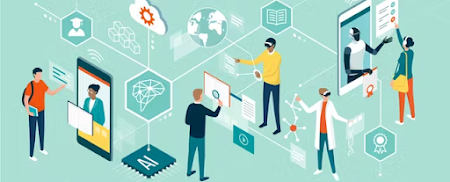Based on my experience integrating technology, particularly artificial intelligence (AI), into classrooms and learning settings, I can say with certainty that AI has had a revolutionary effect on education. Adopting technology has revolutionized traditional educational practices and fostered dynamic learning experiences, bringing about a number of major advantages. A prominent benefit is found in the area of customized education. By analyzing individual student data, AI algorithms make it possible to customize educational content to match the requirements of each student. This flexibility offers pupils a personalized learning experience that takes into account both their strengths and shortcomings in addition to accommodating a variety of learning methods. Additionally, the grading process has been simplified by the advent of computerized assessment technologies, which provide teachers the efficiency of quick feedback while giving students the chance for iterative development.
A new era of interactive and captivating material has also been brought about by the incorporation of AI. AI-powered tutoring programs, interactive multimedia materials, and virtual reality simulations have revolutionized education by transforming the traditional classroom into a dynamic, immersive environment. Subjects like mathematics and physics, which have historically presented difficulties for students, greatly benefit from simulations and visualizations that bring abstract ideas to life and make them understandable. In addition to increasing engagement, this move toward interactive learning promotes a deeper comprehension and memory of difficult content.
Another notable consideration revolves around data privacy and security. The extensive collection and analysis of student data to inform AI-driven decisions raise concerns about the protection of sensitive information. Ethical practices must be a priority, and educators need to be vigilant in safeguarding student privacy, ensuring that the benefits of AI do not come at the expense of compromising personal data.
Furthermore, the potential for a digital divide poses challenges to the widespread adoption of AI in education. Not all educational institutions and students have equal access to advanced technologies, leading to disparities in learning experiences. Bridging this gap requires strategic planning, investment, and a commitment to providing equitable access to educational resources.
To sum up, I have found that integrating technology and artificial intelligence into my teaching and learning process has been both exciting and careful. The benefits—which include increased engagement, assessment efficiency, and tailored learning—showcase artificial intelligence's enormous potential in education. But in order to fully reap these benefits, one must be acutely aware of the drawbacks, which include prejudices, privacy issues, and the possibility of eroding the human element in education. To fully utilize technology and improve education while maintaining its key human elements, a sophisticated and moral integration of AI is necessary, as is continuous professional growth.



